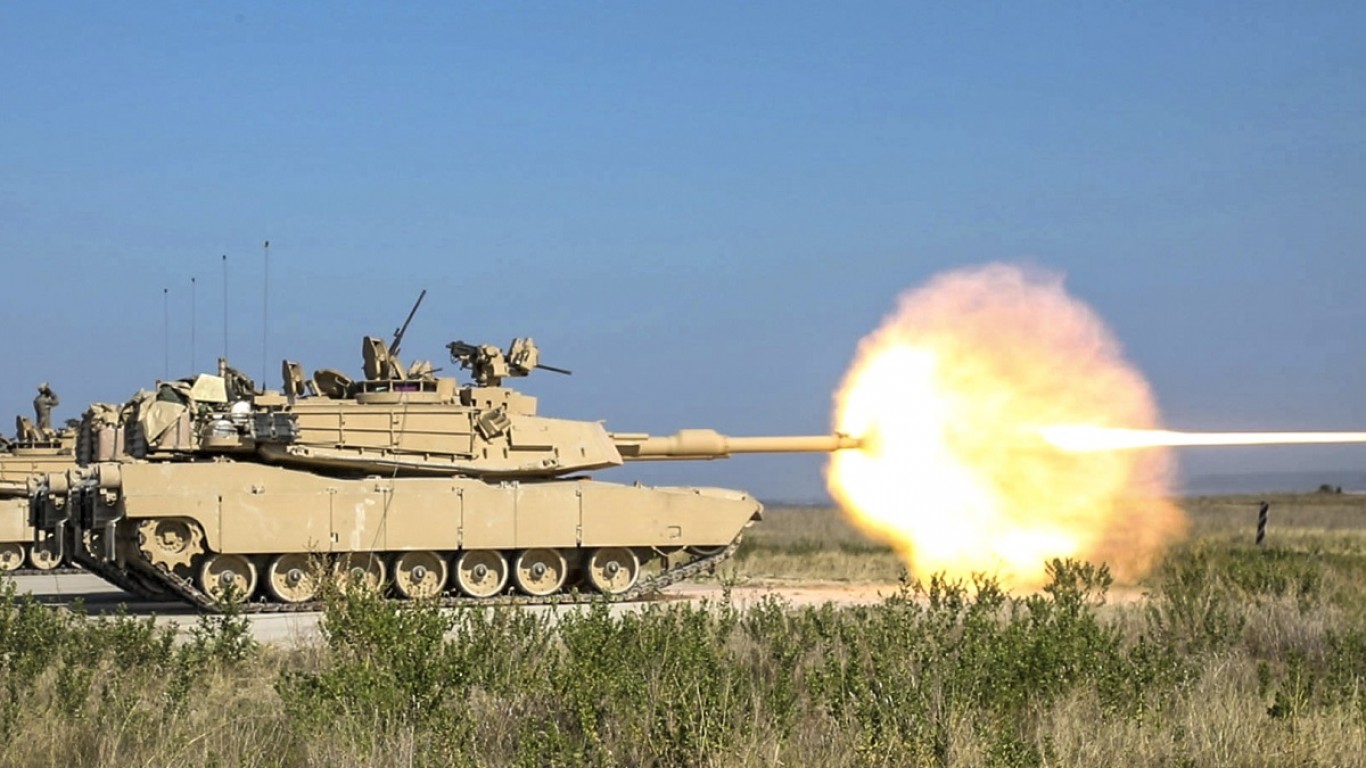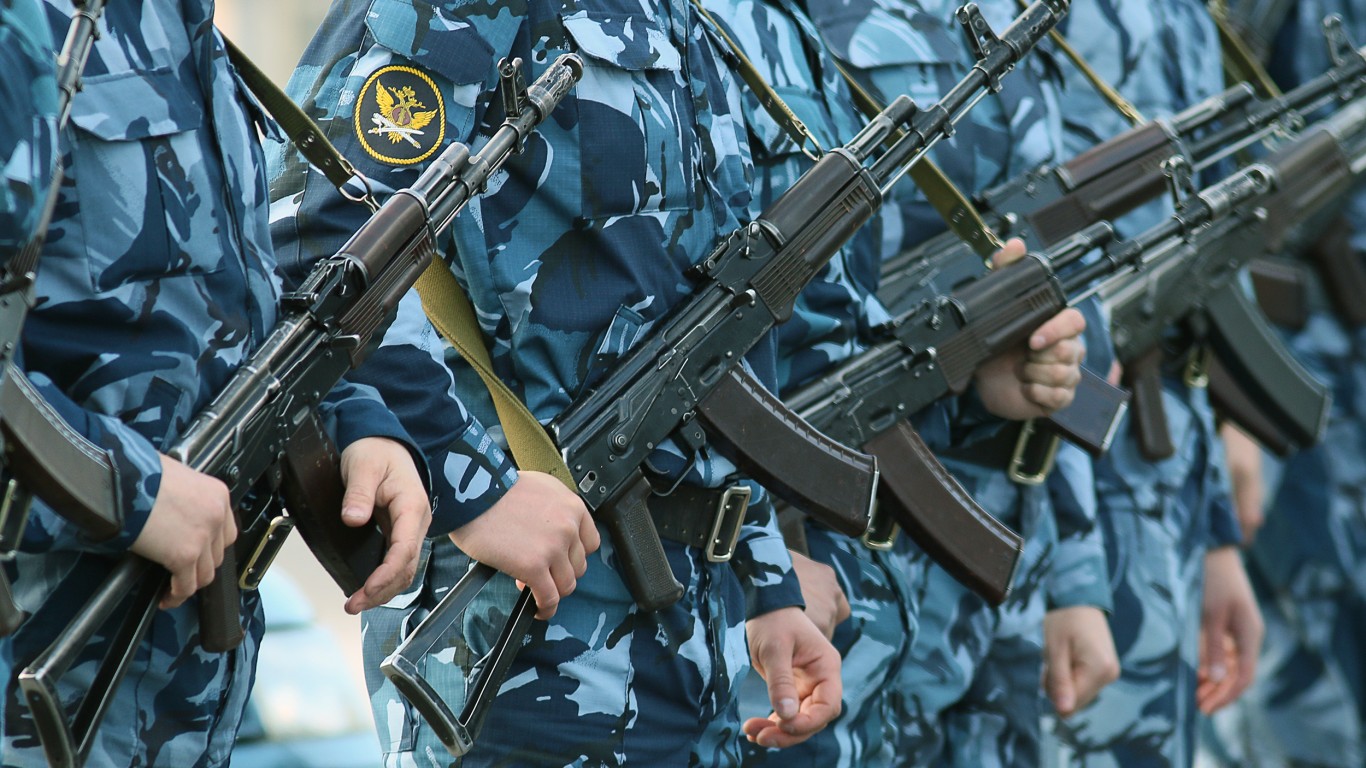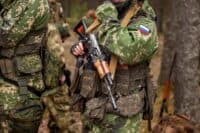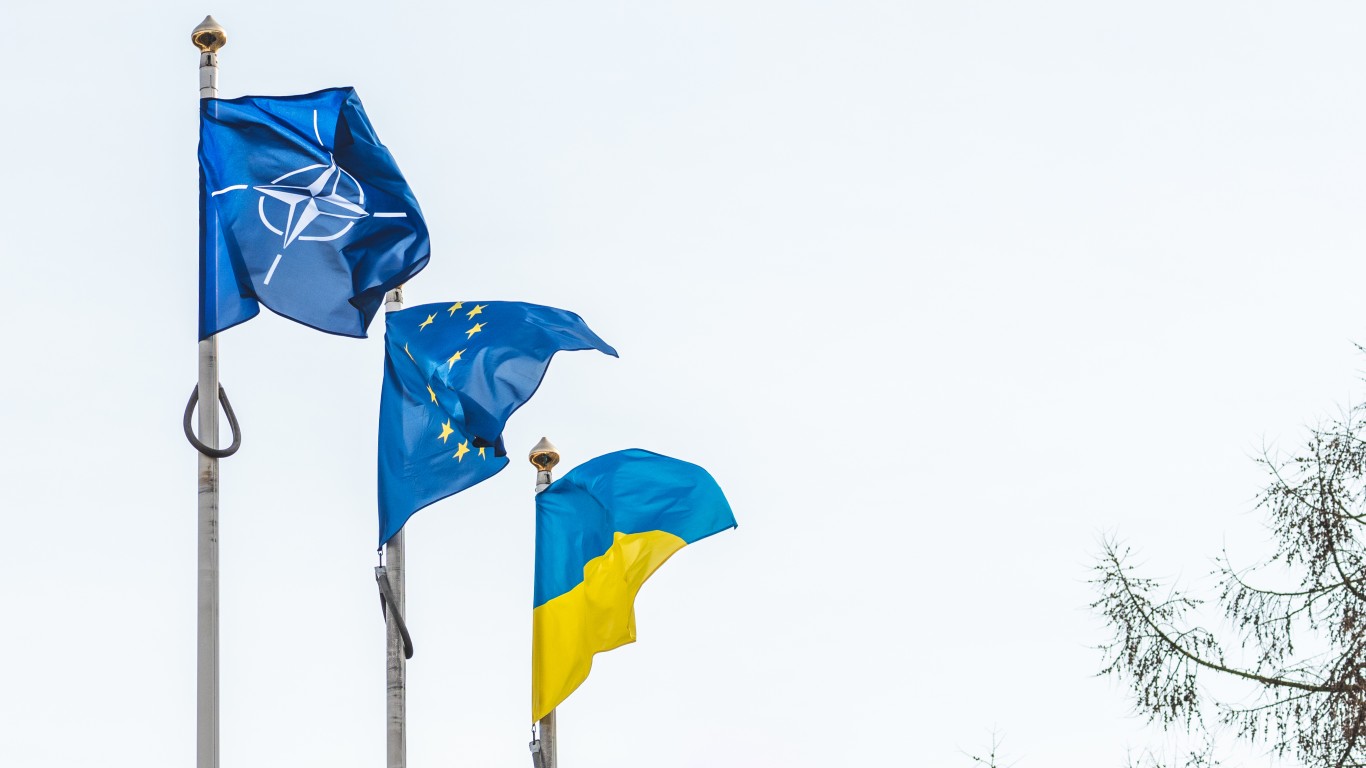
Ukraine formally applied for fast-track NATO membership in September 2022, seven months after Russia’s invasion. While most of the alliance’s members have welcomed Ukraine’s ascension, the sentiment is not universal. Ukraine’s long quest to join NATO encountered resistance from unconvinced members in the past and there are still potential holdouts today. This article will examine the state of Ukraine’s NATO ambitions, opponents, and other obstacles to Kyiv’s membership.
Why This Matters
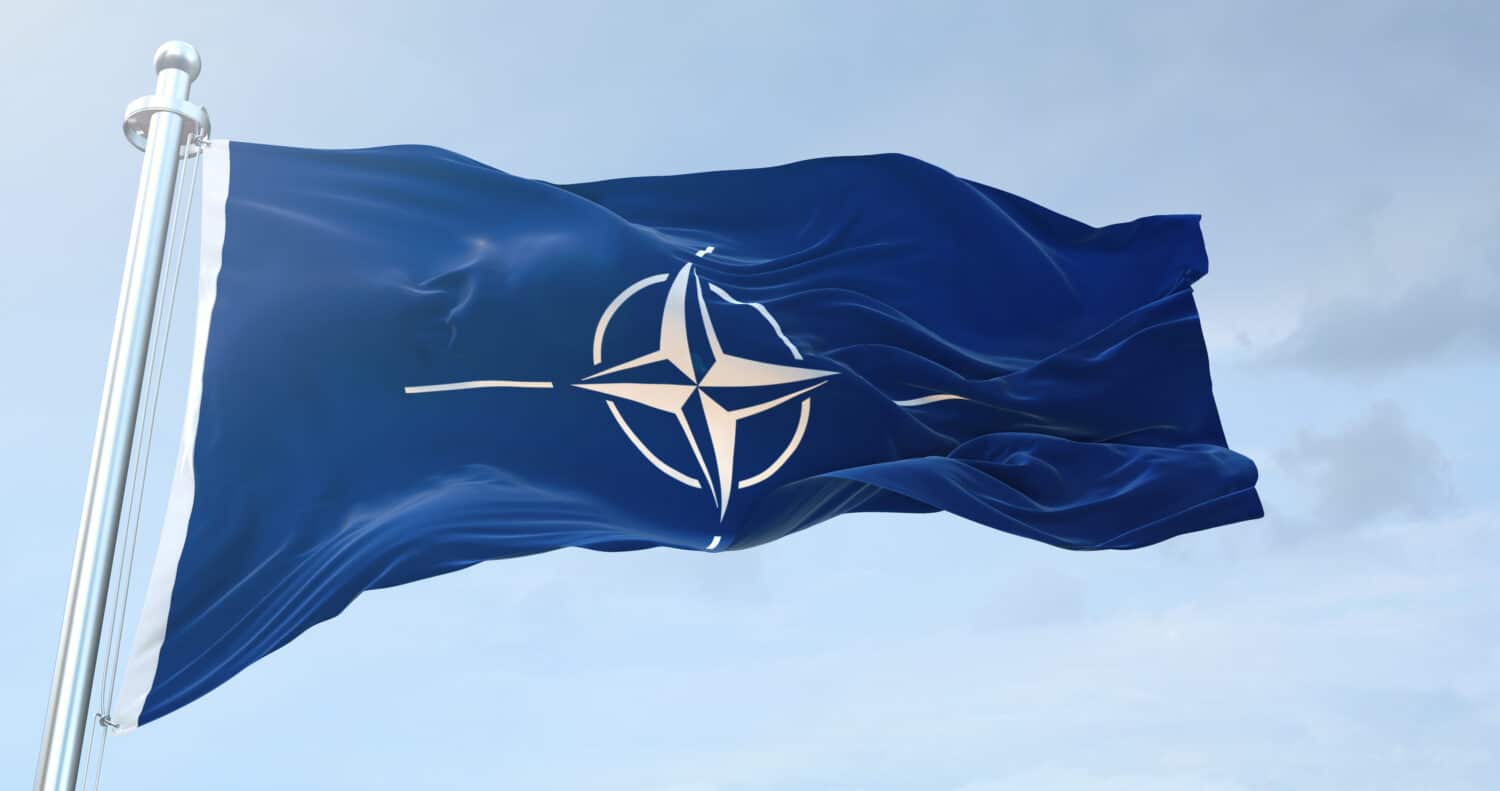
Ukraine joining NATO would have serious implications for the alliance’s future. Article 5 clearly states an attack on one is an attack on all so any future Russian aggression would pose a serious risk of escalation into a global conflict. Equally, Ukraine joining NATO would be the strongest possible deterrent against another attack. It is important to know what’s standing in Ukraine’s way.
Ukraine and NATO
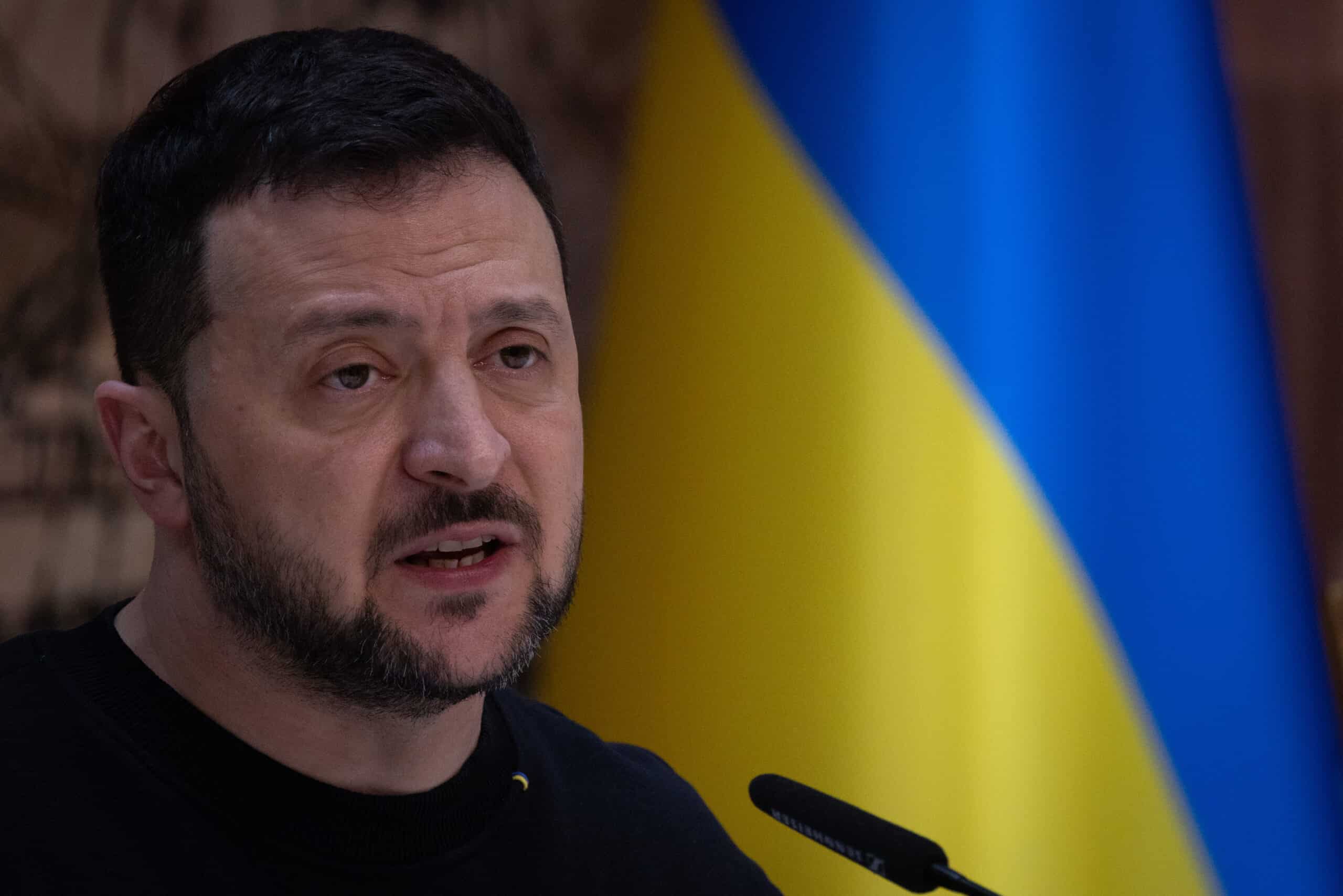
Since breaking away from the Soviet Union, Ukraine’s foreign policy has veered between neutrality, placating Moscow, and pivoting towards the West. Ukraine’s Statement of Sovereignty in 1990 outlined a neutral future outlook:
The Ukrainian SSR solemnly declares its intention of becoming a permanently neutral state that does not participate in military blocs and adheres to three nuclear free principles: to accept, to produce and to purchase no nuclear weapons.
Ukraine has sought NATO membership intermittently since gaining its independence in 1991. Kyiv joined the North Atlantic Cooperation Council and the Partnership for Peace program in 1991 and 1994. A commission was established in 1997 to develop relations between Ukraine and NATO and to create a path toward eventual membership. Around the same time, Ukraine negotiated a deal to give up its nuclear weapons for American aid and guarantees from Russia. Leonid Kumcha, Ukraine’s president from 1994-2005 had little faith in the deal. By the end of his tenure, Kumcha indicated NATO membership was no longer a priority for Ukraine.
His successor, Viktor Yushchenko was more interested in the alliance and Ukraine applied for a Membership Action Plan (MAP) for NATO in 2008. Ukraine’s ascension was a major topic for the 2008 summit in Bucharest. The official declaration suggested both Georgia and Ukraine would eventually join the alliance.
NATO welcomes Ukraine’s and Georgia’s Euro-Atlantic aspirations for membership in NATO. We agreed today that these countries will become members of NATO.
Ukraine had the backing of outgoing US President George W. Bush and both of the candidates to succeed him. Ukraine’s ascension seemed imminent but skepticism from two key members and the election of a more Moscow-aligned President of Ukraine killed the momentum. Public support for NATO membership in Ukraine was mixed but has since swung overwhelmingly in favor of joining the alliance.
The 2008 Bucharest Summit

The 2008 NATO summit declared Georgia and Ukraine would become members of the alliance but declined to give a definitive timeline. French President Nicolas Sarkozy and German Chancellor Angela Merkel were the main opponents to Georgia and Ukraine joining NATO but they were not alone. Only around 14 of the then-26 members of the alliance supported Ukraine.
The divide was between the US, Canada, and the Central and European members standing opposite the Western and Southern European nations coalescing around Germany. Despite intense pressure from the Bush administration, Condoleeza Rice was reportedly reduced to “tears of anger” by the impasse, Merkel and Sarkozy were unmoved. The German position was that a nation amid a territorial dispute, as Georgia and Ukraine were, could not join NATO. Other members pointed out the hypocrisy of Germany’s position, citing the circumstances behind West Germany’s ascension in 1955. Ultimately, a compromise position was worked out where Ukraine and Georgia could join NATO at an undetermined later date.
Just four months later, Russia invaded Georgia and six years on, Russia annexed Crimea from Ukraine. Since the 2022 invasion of Ukraine, Merkel defended her position in an interview with German broadcaster ARD. She insisted the political turmoil of the time meant Kyiv was not ready for membership:
That wasn’t the Ukraine we know today. The country was not stable, it was riddled with corruption.
Merkel’s successor, Olaf Scholz, has taken a similar line to Merkel by insisting that Ukraine cannot join a defensive alliance while already engaged in a conflict. Conversely, his French counterpart has made the most bellicose statements of any Western leader, much to the chagrin of other NATO allies.
Hungary
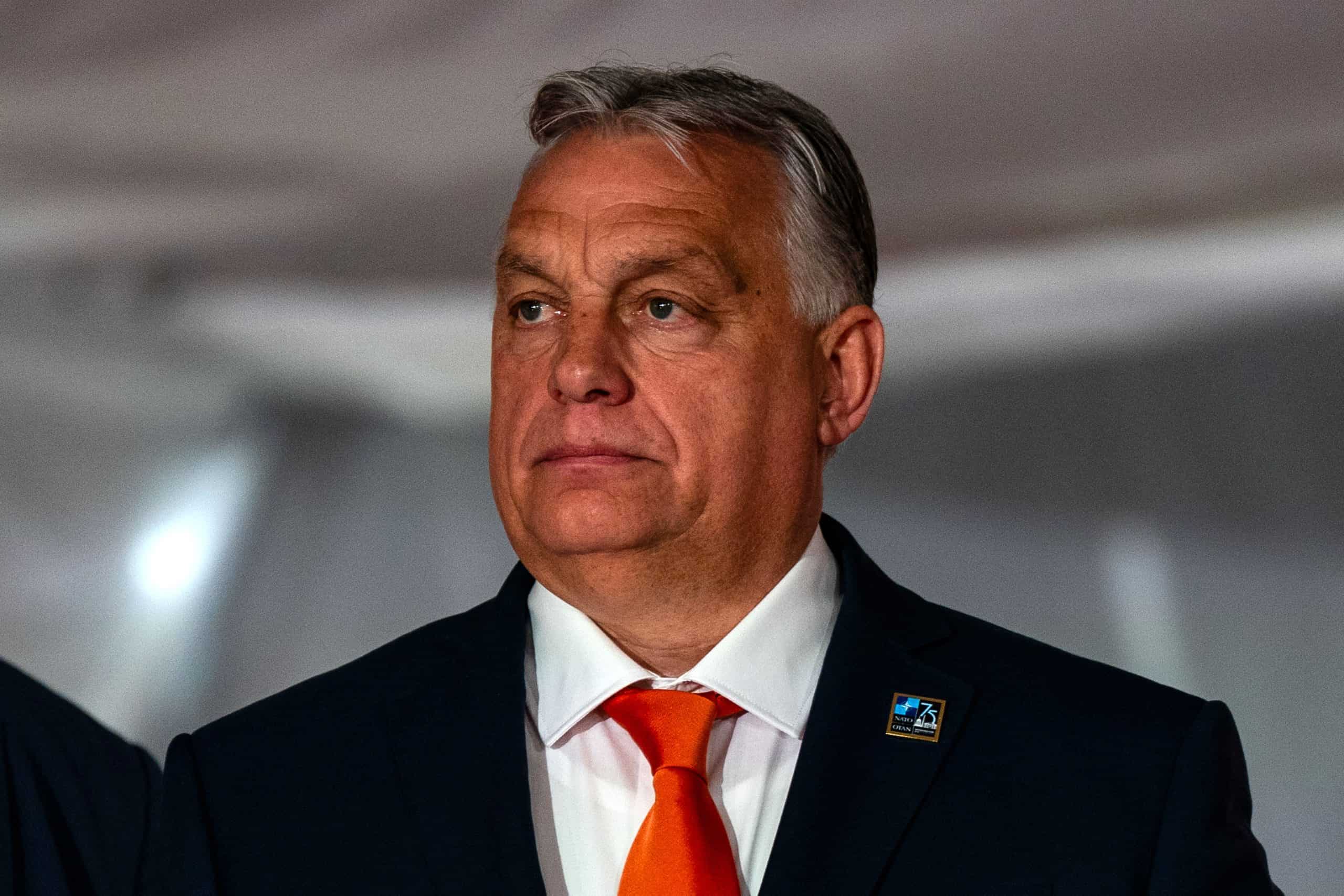
Relations between Hungary and NATO have become strained in recent years. Hungary’s far-right leader Viktor Orban is one of the few European nations with cordial relations with Moscow. Budapest doesn’t support sanctions and has frequently held up financial and military aid packages to Kyiv. Hungary insists its opposition to Ukraine is rooted in concerns over the country’s treatment of its ethnic minorities. To the irritation of other EU and NATO members, Orban met Putin in July 2024 and has called for an immediate ceasefire.
Though Hungary pledged not to veto Ukraine’s bid, Orban insists Budapest won’t participate in any NATO efforts to aid Kyiv:
We do not approve of this, nor do we want to participate in financial or arms support (for Ukraine), even within the framework of NATO
Slovakia
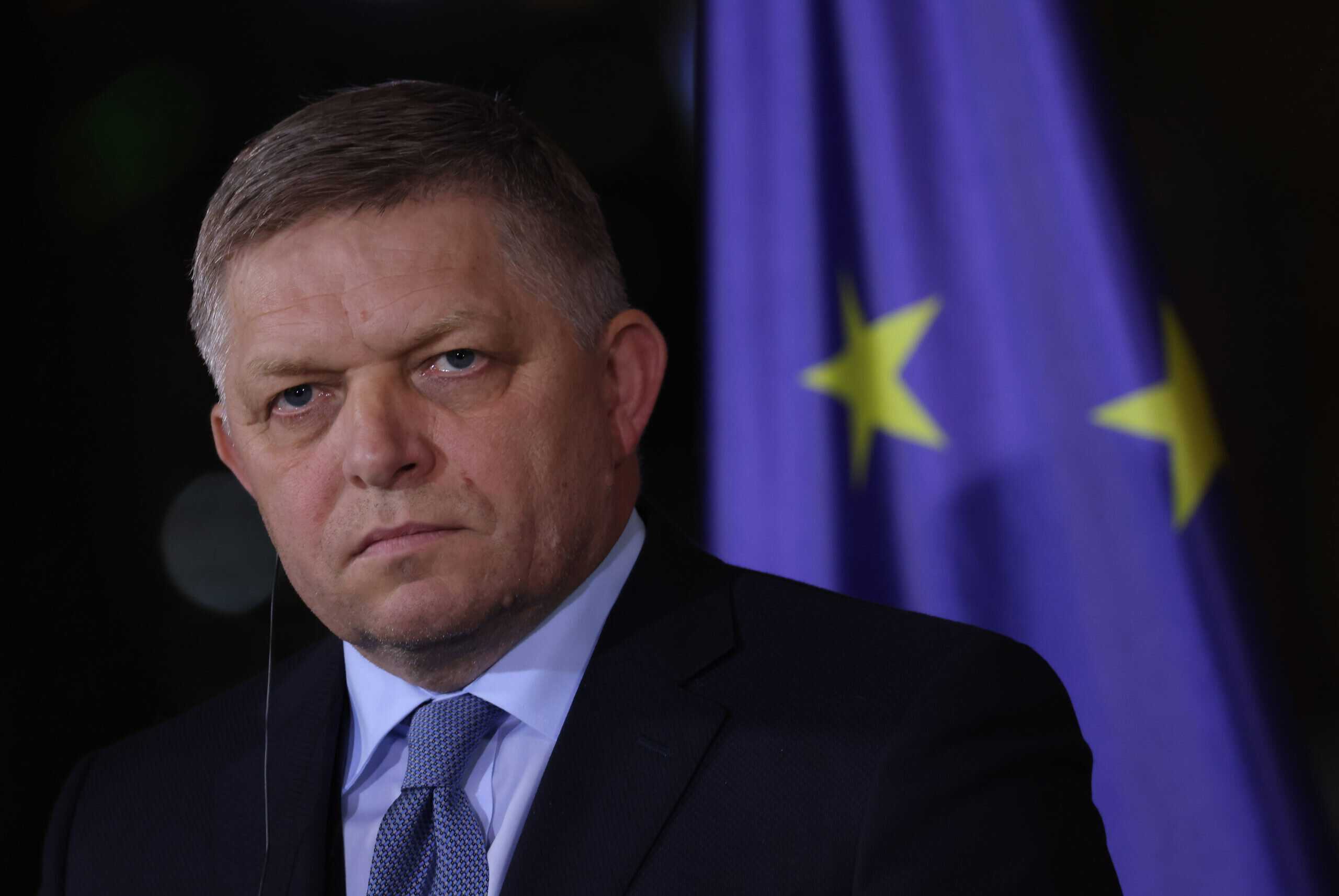
Slovakia’s stockpile of Soviet-era weaponry from its days in the Warsaw Pact proved very useful to Ukraine in the early stages of the war. While the donated BMPs and MiG-29s are no match for modern hardware, they were already familiar to Ukraine’s armed forces and available in a pinch. Unfortunately for Ukraine, Slovakia appears to moving in a similar direction as Hungary.
In the 2023 Slovakian elections, former Prime Minister Robert Fico returned to power for the third time. He pledged to end support for Ukraine and refused to participate in the Czech-led initiative to purchase artillery shells for Ukraine. However, Slovakian citizens contributed over €1m to the effort in less than 48 hours. Fico has called for Ukraine to give up territory to secure peace and vowed to block Kyiv’s NATO bid. In January 2024, Fico said admitting Ukraine into NATO would risk instigating a World War.
The United States
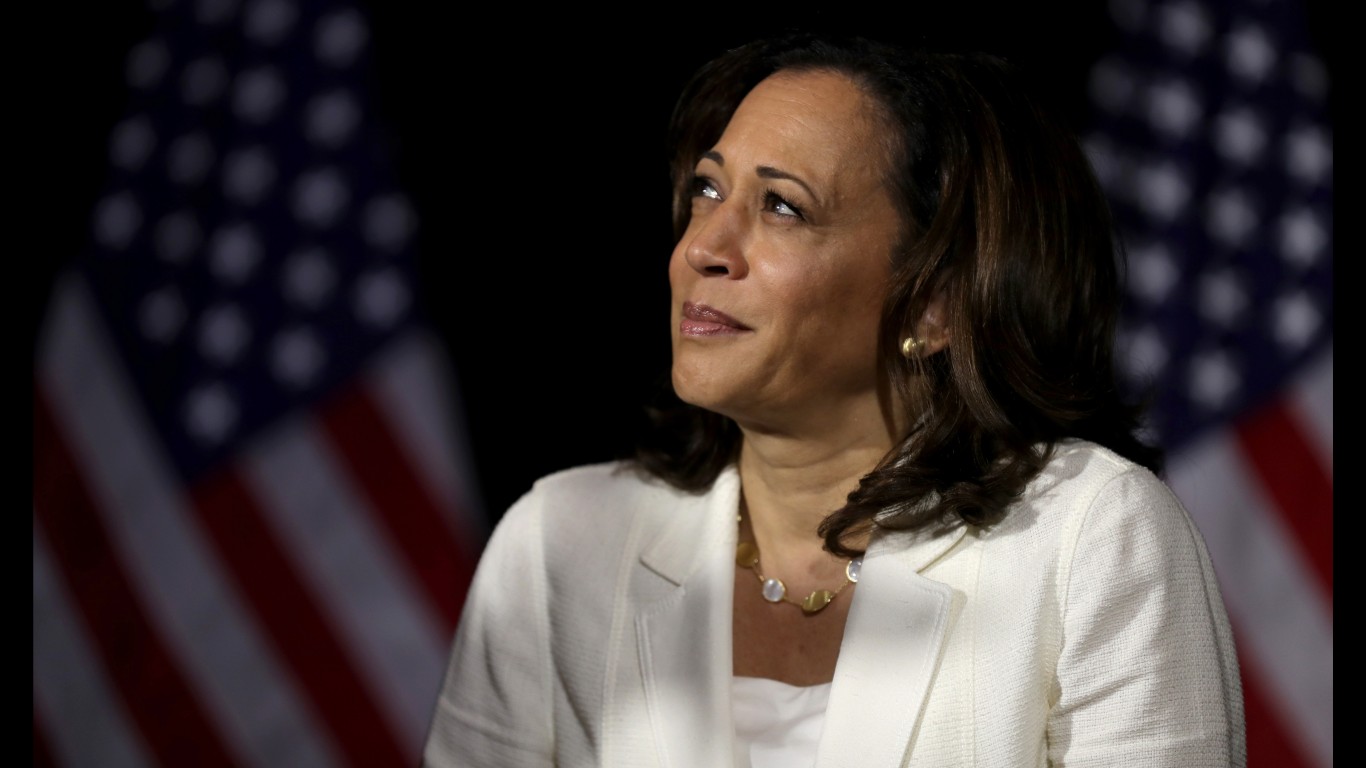
The USA has provided more military aid to Ukraine than any other nation. In the first year of the conflict, Congress passed four major aid packages. However, since the Republican party regained control of the House of Representatives, Ukrainian aid has slowed significantly. No new aid bills were agreed in 2023 as the historically unproductive 118th Congress became embroiled in partisan bickering. The largest aid package of all finally made it through Congress in April 2024, the first in 16 months. While there are several pro-Ukraine Republicans, the anti-Ukraine wing of the party is larger.
The outcome of the 2024 US election will have a huge bearing on Ukraine’s future. Should the Harris-Walz ticket prevail, American support for Ukraine could pick up again and Kyiv’s ascension to NATO will be a formality. On accepting the Democratic nomination for president, she affirmed her support for Ukraine and NATO. However, the Trump-Vance ticket is more skeptical and could have serious repercussions for not only Ukraine but also NATO’s future. Trump has consistently attacked members of NATO for not reaching their spending targets, while his running mate has previously suggested he doesn’t care what happens to Ukraine.
Conclusion
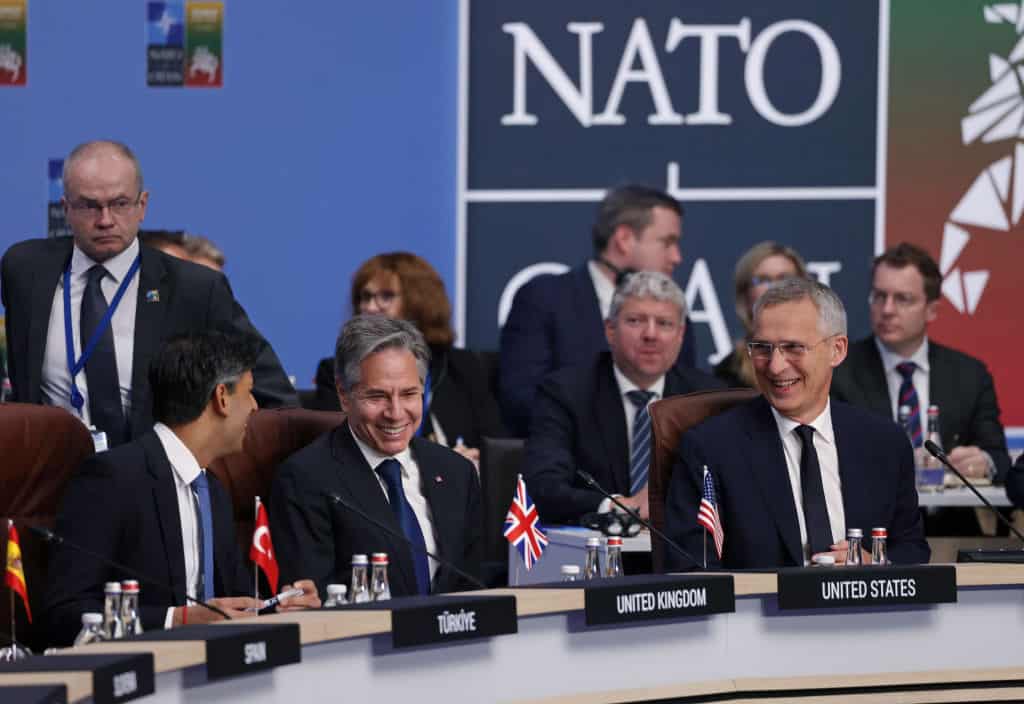
Ukraine’s future in NATO is by no means a foregone conclusion, one holdout could delay Kyiv’s application indefinitely. The delayed ascensions of both Finland and Sweden at Turkey’s insistence serve as a reminder that getting all 32 members on board will be challenging.
Additionally, the leaders of Slovakia and Hungary have expressed skepticism towards further aid to Ukraine and would likely block Ukraine’s application after the conflict. Their objections needn’t be insurmountable as the senior members of NATO could provide weapons and financial incentives for the holdouts. However, the outcome of the US presidential election will have the largest impact on Ukraine’s application. Should NATO and Ukraine skeptics gain power in the White House and Congress, it’s unlikely Ukraine’s bid will succeed. At least in the short term.
Take Charge of Your Retirement In Just A Few Minutes (Sponsor)
Retirement planning doesn’t have to feel overwhelming. The key is finding expert guidance—and SmartAsset’s simple quiz makes it easier than ever for you to connect with a vetted financial advisor.
Here’s how it works:
- Answer a Few Simple Questions. Tell us a bit about your goals and preferences—it only takes a few minutes!
- Get Matched with Vetted Advisors Our smart tool matches you with up to three pre-screened, vetted advisors who serve your area and are held to a fiduciary standard to act in your best interests. Click here to begin
- Choose Your Fit Review their profiles, schedule an introductory call (or meet in person), and select the advisor who feel is right for you.
Why wait? Start building the retirement you’ve always dreamed of. Click here to get started today!
Thank you for reading! Have some feedback for us?
Contact the 24/7 Wall St. editorial team.
